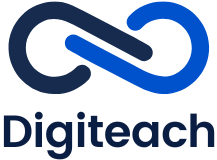Data science has become a highly sought-after field in today’s data-driven world since it offers a wide range of options and excellent job prospects. Breaking into data science can seem like a daunting challenge, whether you’re an aspiring data scientist or a professional wanting to make the switch. However, you can pave your route to success in this fascinating sector if you have the correct attitude, commitment, and strategy. We’ll look at the key techniques and methods in this blog post to get you started in data science.
Understand the Field
Before diving into the world of data science, it’s crucial to develop a solid understanding of what it entails. Data science is an interdisciplinary field that combines statistics, mathematics, computer science, and domain knowledge to extract insights and make data-driven decisions. Familiarize yourself with key concepts such as machine learning, statistical analysis, data visualization, and programming languages like Python or R. Acquiring a foundational understanding will help you navigate the field more effectively.
Develop a Strong Foundation
Building a strong foundation is essential for a successful career in data science. Start by enhancing your knowledge of mathematics, statistics, and probability theory, as these form the basis of many data science techniques. Online courses, tutorials, and textbooks can serve as excellent resources for learning these fundamentals. Additionally, gain proficiency in a programming language commonly used in data science, such as Python or R, as they are essential tools for data manipulation and analysis.
Acquire Relevant Skills
To stand out in the competitive data science job market, it’s crucial to acquire a diverse skill set. Some essential skills for a data scientist include:
- Data Manipulation and Analysis: Master the art of cleaning, transforming, and analyzing data using libraries and tools like pandas, NumPy, and SQL.
- Machine Learning: Develop a solid understanding of machine learning algorithms, both supervised and unsupervised. Explore popular libraries such as scikit-learn, TensorFlow, or PyTorch.
- Data Visualization: Learn to create visually appealing and insightful visualizations using libraries like Matplotlib, Seaborn, or Tableau.
- Big Data Technologies: Familiarize yourself with distributed computing frameworks like Apache Hadoop and Apache Spark to handle large-scale datasets.
Hands-on Experience through Projects
Theory alone is not sufficient in data science. Practical experience through projects is crucial for honing your skills and demonstrating your capabilities to potential employers. Start by working on personal projects or participating in online platforms and competitions such as Kaggle. This will not only allow you to apply your knowledge but also showcase your problem-solving abilities and creativity to prospective employers.
Networking and Building a Portfolio
Networking is an integral part of breaking into any field, and data science is no exception. Attend industry events, conferences, and meetups to connect with professionals and learn about the latest trends. Engage with the data science community through online forums, social media, and data science blogs. Additionally, create an online portfolio or personal website to showcase your projects, skills, and achievements. A well-curated portfolio will help you make a strong impression and increase your chances of getting noticed by potential employers.
Continuous Learning and Stay Updated
Data science is a rapidly evolving field, with new techniques and tools emerging regularly. To stay relevant and competitive, it’s crucial to embrace a mindset of lifelong learning. Engage in continuous learning through online courses, workshops, webinars, and reading research papers. Stay updated with the latest trends, technologies, and best practices to keep your skills sharp and adapt to industry changes.
Leverage Internships and Entry-level Positions
Securing internships or entry-level positions in data science can provide valuable industry experience and open doors to future opportunities. While these positions may not be as glamorous as senior roles, they offer a valuable learning experience and a chance to work alongside experienced professionals. Internships allow you to apply your knowledge in a real-world setting, gain hands-on experience with industry tools and processes, and build a professional network. Treat these opportunities as stepping stones towards your ultimate goal and make the most out of them.
Pursue Further Education
While a formal degree in data science or a related field is not always mandatory, it can significantly boost your credibility and open doors to more advanced positions. Consider pursuing a Master’s degree or specialized certifications in data science, machine learning, or big data analytics, depending on your interests and career goals. These programs provide in-depth knowledge, exposure to cutting-edge research, and access to industry connections that can accelerate your career progression.
Develop Soft Skills
Data science is not solely about technical skills. Employers also value strong soft skills such as communication, problem-solving, critical thinking, and teamwork. Cultivate these skills through effective communication, working collaboratively on group projects, and actively seeking feedback. Data scientists often need to translate complex technical concepts into understandable insights for non-technical stakeholders, so honing your ability to communicate effectively is paramount.
Apply and Adapt
Finally, once you feel confident in your skills and experience, start applying for data science positions that align with your career aspirations. Tailor your resume and cover letter to highlight relevant projects and experiences. Be prepared for the interview process, which often includes technical assessments, coding challenges, and case studies. Remember that landing your dream job may take time and persistence, so don’t get discouraged by rejections. Use each experience as a learning opportunity to refine your skills and interview techniques.
Participate in Open Source Projects and Collaborative Platforms
Engaging in open-source projects or collaborative platforms such as GitHub can be immensely beneficial for your data science journey. Contributing to open-source projects not only allows you to work on real-world projects with a team but also helps you develop your coding skills, learn from experienced developers, and showcase your abilities to potential employers. It also demonstrates your commitment to the field and your ability to collaborate effectively.
Seek Mentorship and Guidance
Finding a mentor or joining a data science community can provide invaluable guidance and support throughout your career transition. A mentor who has expertise in data science can offer insights, advice, and personalized career guidance. They can help you navigate challenges, identify learning opportunities, and provide feedback on your projects and progress. Joining data science communities or online forums allows you to connect with like-minded individuals, share experiences, and learn from each other’s successes and failures.
Stay Abreast of Industry Trends and Technologies
The field of data science is constantly evolving, with new techniques, tools, and frameworks being developed regularly. To stay competitive, make it a habit to stay up to date with the latest trends and technologies. Follow influential data scientists and thought leaders on social media platforms, read industry publications and blogs, and attend webinars or conferences. By staying informed, you can adapt to emerging trends, acquire new skills, and demonstrate your commitment to continuous learning.
Develop a Strong Online Presence
In today’s digital age, having a strong online presence is crucial for career advancement. Build your personal brand by sharing your knowledge, insights, and projects through blog posts, social media platforms, or data science communities. Engage with the online community by participating in discussions, answering questions, and sharing valuable resources. Establishing yourself as a thought leader in the field can enhance your visibility, attract potential employers or clients, and open doors to new opportunities.
Consider Freelancing or Consulting
If you’re looking for alternative career paths or want to gain more diverse experiences, consider freelancing or consulting in data science. Freelancing allows you to work on a variety of projects, build a diverse portfolio, and develop your client management skills. Consulting offers opportunities to work with different industries and organizations, tackling unique challenges and providing data-driven solutions. These experiences not only broaden your skill set but also allow you to establish a professional network and gain exposure to different business contexts.
Emphasize Domain Expertise
While a strong technical foundation is essential, having domain expertise can give you a competitive edge in certain industries. Consider specializing in a particular domain such as finance, healthcare, marketing, or manufacturing. By understanding the specific challenges and requirements of a particular industry, you can tailor your skills and projects to address their needs effectively. Domain expertise combined with data science skills can make you a valuable asset to companies operating in that field.
Breaking into data science requires a combination of technical expertise, practical experience, continuous learning, and networking. By developing a strong foundation, acquiring relevant skills, working on real-world projects, networking with professionals, and staying updated with industry trends, you can increase your chances of success in this competitive field. Remember that the journey to becoming a data scientist is a continuous process, and maintaining a growth mindset will enable you to adapt to the ever-changing landscape of data science. So, embrace the challenge, stay persistent, and seize the opportunities that come your way as you embark on your data science career.






